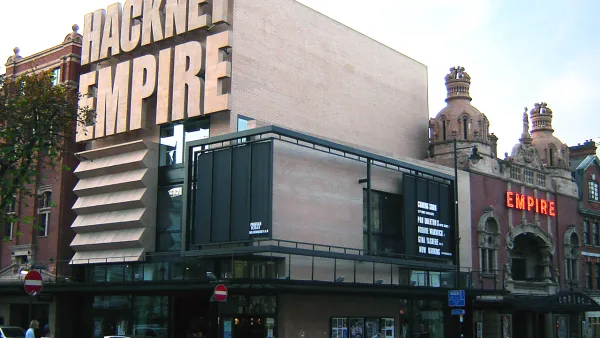Unprecedented urbanization calls for unprecedented planning, argues writer Tim De Chant. His proposal: a scientific model for responsive urban design.
Historically, city planning has relied heavily on design and with much success. The mounting pressure cities face as urban populations grow, however, will bring about unique challenges that require a more responsive solution. Enter, science.
Michael Batty, an urban planner and professor at University College London is combining planning with systems science, "where bright minds and complex mathematical models try to digest the entirety of a system, like a city." De Chant points out that urban design is largely speculative, relying on a limited flow of information. Cities generate a wealth of uncaptured data that could be used to formulate rapidly responsive design solutions to emerging problems.
As De Champ puts it: "Subways are crowded, freeways are jammed, and sewers are overflowing. Throwing money at temporary fixes will only get us so far. We need to dig deeper and develop a responsive urbanism, one that's grand in scale and scientifically focused. We need to listen to what cities are telling us, decide what we want them to do, and plan accordingly."
Thanks to Jessica Brent
FULL STORY: Responsive Urban Design

National Parks Layoffs Will Cause Communities to Lose Billions
Thousands of essential park workers were laid off this week, just before the busy spring break season.

Retro-silient?: America’s First “Eco-burb,” The Woodlands Turns 50
A master-planned community north of Houston offers lessons on green infrastructure and resilient design, but falls short of its founder’s lofty affordability and walkability goals.

Delivering for America Plan Will Downgrade Mail Service in at Least 49.5 Percent of Zip Codes
Republican and Democrat lawmakers criticize the plan for its disproportionate negative impact on rural communities.

Test News Post 1
This is a summary

Test News Headline 46
Test for the image on the front page.

Balancing Bombs and Butterflies: How the National Guard Protects a Rare Species
The National Guard at Fort Indiantown Gap uses GIS technology and land management strategies to balance military training with conservation efforts, ensuring the survival of the rare eastern regal fritillary butterfly.
Urban Design for Planners 1: Software Tools
This six-course series explores essential urban design concepts using open source software and equips planners with the tools they need to participate fully in the urban design process.
Planning for Universal Design
Learn the tools for implementing Universal Design in planning regulations.
EMC Planning Group, Inc.
Planetizen
Planetizen
Mpact (formerly Rail~Volution)
Great Falls Development Authority, Inc.
HUDs Office of Policy Development and Research
NYU Wagner Graduate School of Public Service



























